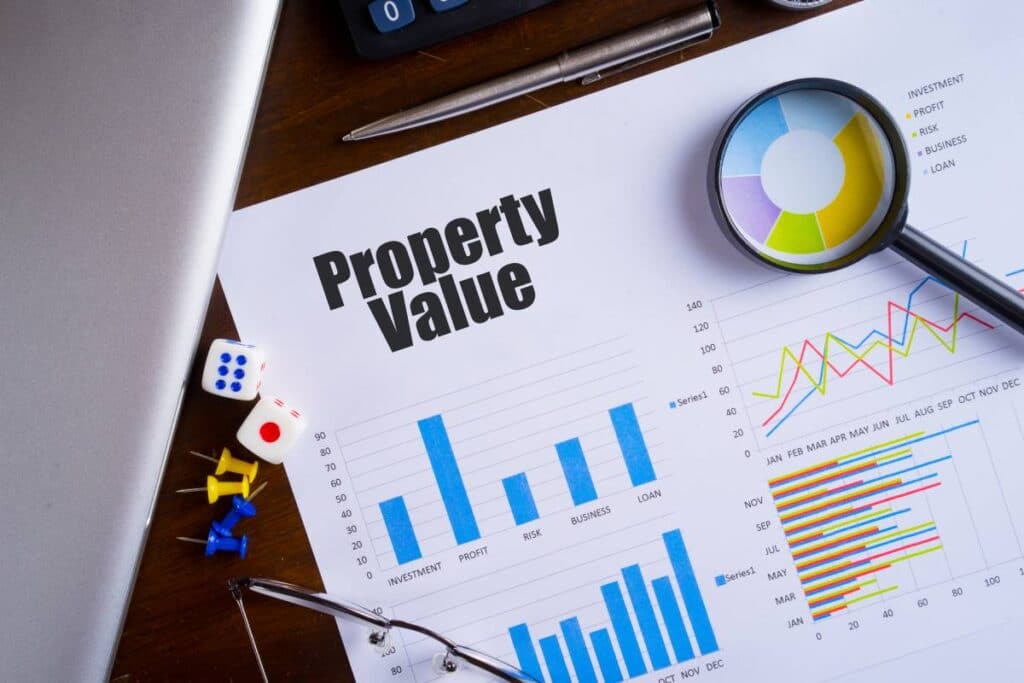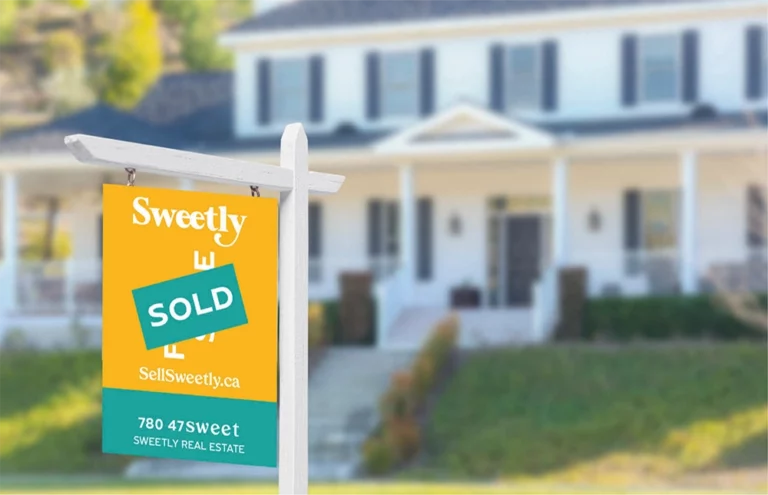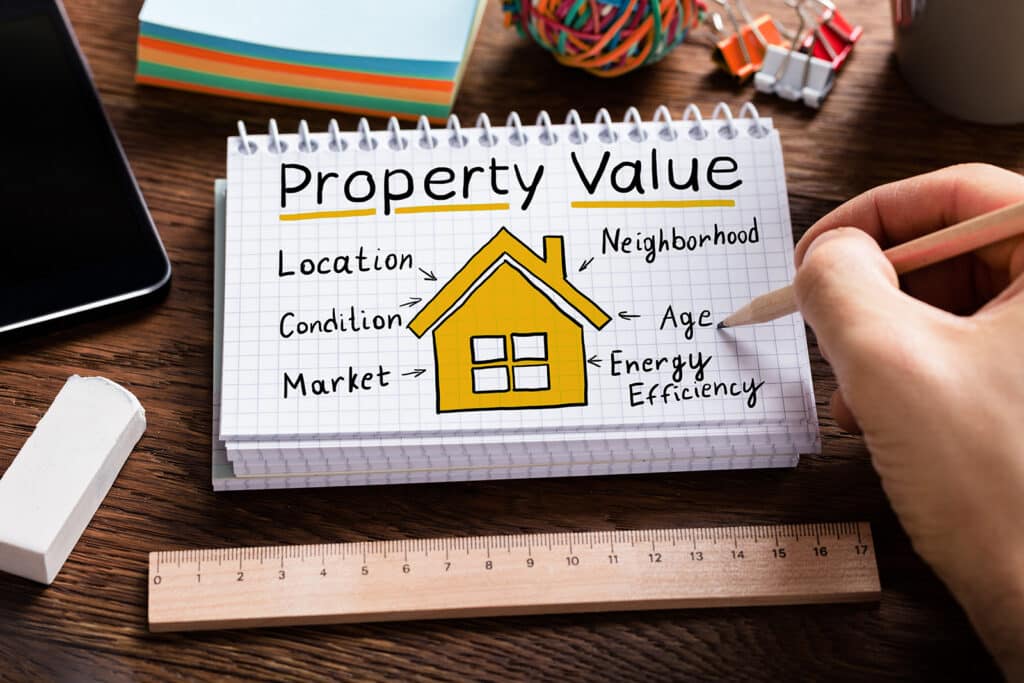If you buy a home for cash in Edmonton, a home appraisal is not strictly necessary. However, for mortgages, your lender will need a home appraisal to avoid lending more than the home is worth, allowing them to recover the loan amount if you default on the loan. The buyer and appraiser define the type of value the process yields. Consequently, define your goals for the process before it begins (your lender should provide instructions).
Values sought by a property appraisal may include use value, assessed value, going concern value, and most importantly for residential homes – market value. If you are considering purchasing a home in Edmonton, below is everything you need to know about home appraisals, including the legalities, money-saving tips, and what to do if an appraisal comes in too low or too high.
Quick Take: Do you need a home appraisal when buying a home in Edmonton?
- A buyer or seller of a home may purchase a home appraisal. Your lender may hire an appraiser or provide a list of approved appraisers.
- Some lenders in Canada pay for a home appraisal.
- Your lender will require a home appraisal after the seller accepts an offer in writing.
- Hiring an AIC (Appraisal Institute of Canada) approved appraiser is advisable.
- A home appraisal will cost you between $300 to $600+ depending on the size, location, and complexity of the process.
- A home appraisal report ensures the lender can recover their investment should the homebuyer default on the mortgage.
- Your mortgage broker may require a home appraisal if you are applying for an uninsured mortgage.
- Lenders may also require a home appraisal if the property’s value is in question.
- Appraisal reports can be written or oral.
- Appraisal reports remain relevant for up to two months, at Sweetly we consider home appraisals valid for 90 days as a general guideline.
- A low appraisal may cause the lender to change the rate or pull out. Some lenders may also require mortgage insurance.
- The buyer and the seller may request and pay for a second appraisal if they disagree with the first appraisal value.
Understanding the appraisal process: What is a home appraisal in Edmonton, Alberta?

A home appraisal is an assessment of the fair market value of real estate. The purpose of it is the stated reason and the scope of the assignment (check purchase contract). In real estate, a home appraisal is beneficial -in that- it assures the lender and, in some instances sellers that they are getting a fair market value for the property.
Consequently, if you are purchasing a home via a mortgage or trying to acquire equity out of your home through other financial services – your lender may require you to pay for an appraisal.
Within Edmonton, there are two types of Appraisal
The fundamental difference between these is the timelines that they look at.
A Relocation Appraisal
This is the type of appraisal that Sweetly deals with as it relates to the short-term fair market value of the home. The short-term horizon of this means that it is valid for 90 days.
A Mortgage Appraisal
A mortgage appraisal has a longer timeline because mortgages may be 25 (or more years), so a mortgage appraisal looks into the future to ensure the home’s value will remain intact for the life of the mortgage.
Tip: You may have to repeat the process if the appraisal report is not in line with your lender’s requirements.
What are the methods of home appraisals in Alberta?

Depending on the lender requirements or expert opinion, a home appraiser may use one or a combination of the following appraisal methods.
The sales comparison approach
Compare the home or property to similar properties sold in the area. That is the premise of the comparable sales approach.
How do you conduct a sales comparison approach?
In determining a fair market value for a home or property in Edmonton, a sales comparison approach requires the home appraiser to do the following:
- Identify comparable properties in the area. The factors the appraiser will consider include the home’s location, neighborhood, recently sold listings, age, condition, and the type/style of the house.
- Determine the shared characteristics between the comparable homes and primary home. That includes features, square footage, additions, and other factors that may add value to the property.
- Check market trends and make adjustments to comparable values. Edmonton’s property market regularly shifts, and a home sold in one location may cost more or less than a comparable home sold in other areas. The factors that affect the changes may include security, location, amenities, and accessibility.
Why use the sales comparison approach?
The sales comparison approach relies on current market trends -making it one of the most accurate appraisal methods.
Income capitalization approach
If you are purchasing a commercial property, or a property that has the potential to generate income, such as an apartment complex. Your home appraiser may employ an income capitalization approach to estimate value.
The method is “math heavy” -employing models and calculations that predict future income the property may generate. As a result, the income capitalization approach is not as accurate as the sales comparison approach.
How do you figure the value using the income capitalization approach?
The income capitalization approach is a three-step process that entails (1) calculating the stabilized net operating income. (2) determining the appropriate capitalization rate. (3) to find the estimated value, divide the net operating income by the cap rate.
What is the formula for the income capitalization approach?
Net Operating Income/capitalization rate=estimated property value.
What to remember
- Capitalization Rate refers to the rate of returns on real property based on expected income.
- Net Operating Income (NOI) determines the profitability and revenue of invested real property after subtracting necessary operating expenses.
Cost approach
The cost approach method asks one question. How much did it cost to construct the property? Or how much will it cost to replicate the home?
The approach requires the appraiser to consider factors including the land’s price and construction materials cost.
The cost approach formula
Cost of land and construction-depreciation= estimated value.
Combine all the factors above
An appraiser may utilize all methods to determine fair market value.
How much does a home appraisal cost?
A home appraisal in Alberta may cost you anywhere from $200 to $600 or more. Unfortunately, the money is not refundable, and if your lender does not approve the process or appraiser, you may have to pay for another appraisal.
What to remember:
- Your lender may have a list of approved appraisers.
- You may have to repeat the process if you hire an uncertified appraiser.
- The appraisal process begins after you pay for the service or depending on your agreement with the appraiser.
- The buyer pays for an appraisal, not the lender.
When is an appraisal ordered in the loan process in Edmonton?
Once the seller accepts your offer in writing, your lender will order an appraisal. Some lenders may also require a home inspection report.
The factors that affect the market value of a home or property in Alberta include:
- The location. The crime rates, amenities, neighbourhood, infrastructure, and accessibility impact the market value of a home. Consequently, similarly styled homes’ prices may differ based on location.
- The building and amenities. The structure of the house, square footage, living space, and related factors.
- Market factors. A “buyer’s market” occurs when supplies exceed demand. This drives the value of the property down. A seller’s market is the opposite of a buyers’ market. If you intend to sell a home in Alberta, you should check market conditions or contact an experienced REALTOR®.
Other factors
- Utility. A useful feature adds more value to a property than decorative or non-functional additions.
- Scarcity/the home’s desirability.
How long is a home appraisal report good for?
A relocation home appraisal report in Alberta should be good for 60 to 90 days, depending on market conditions and the type of loan. Why?
The appraisal methods listed above vary depending on market conditions. Thus the cost of a home today may differ in two to three months. In other words, a home appraisal must be up to date.
How do I find the last appraisal for a house in Edmonton?
You may contact the property’s previous owner or the professional who conducted the appraisal. If the previous homeowner has done an appraisal, they may share it with you, however, if the appraisal was done longer than 3 months ago, it may not offer valid insight into the true value of the property. Additionally, if the home has sold recently, you can view sold data to see how much it (or other homes in the area) have sold for.
Does the buyer have to give a seller an appraisal report?
No. Alberta law does not require the buyer to provide a home appraisal report to the seller. However, the seller may request a copy.
What do home sellers in Alberta need to know about home appraisals?
- An appraisal report may strengthen or weaken the seller’s bargaining power.
- The buyer may negotiate a lower price if an appraisal report is low. The buyer may also agree to pay the difference out of pocket.
- If you include an appraisal contingency in the purchase contract, you may pull out of the sale without legal backlash.
Is a home appraisal done before or after putting down earnest money in Alberta?
Many home purchase contracts in Alberta require the buyer to deposit earnest money before a home appraisal. That raises the question.
What happens to earnest money if an appraisal is low?
What does the contract say? Failure to complete the sale may mean losing your earnest money if there is no contingency.
To avoid getting yourself in a contract that you cannot exit without legal repercussions, you should include an appraisal contingency that specifies what happens to the earnest money.
We recommend reading and understanding the terms of the contract before signing. Remember, once you sign, you enter a binding agreement, meaning an escrow account may release the money to the seller if the sales fall through and the contract requires it.
What is a home appraisal contingency?
An appraisal contingency is an additional clause that once signed by the buyer and seller- becomes part of the sale contract. If included in a purchase contract, the buyer or seller can safely pull out of a sale without facing a lawsuit.
The parties may also include a dispute resolution process in the contract. That way, you can avoid going to court should a dispute over appraisal, or another issue arises.
What to remember:
- A home appraisal contingency/addendum gives the buyer the option to negotiate a lower price or back out of a deal.
- The buyer may remove a home appraisal contingency if he so chooses. The consequence of such action is the buyer may become responsible for the cost of repairs and closing costs. We recommend consulting with a real estate attorney before altering the terms of a contract.
- Apart from an appraisal contingency, the parties may also agree to include a finance and inspection contingency.
Can you sue a home appraiser in Edmonton?
Yes. Professional negligence could be grounds for a lawsuit in Alberta.
Home appraiser liability in Canada: What to remember
A home buyer or seller may take legal action against a home appraiser for the following reasons:
- Professional negligence/ destruction of property. Other liabilities include fraud, breach of contract, and failure to comply with CUSPAP requirements.
CUSPAP (Canadian Standards of Professional Appraisal Practice) requires home appraisers in Canada to adhere to the following standards.
- Ethics standards
- Real property appraisal standard
- Mass appraisal standard
- Review standard
- Consulting standard
- Appraisal of machinery and equipment standards.
- Reporting standard.
- Reserve fund studies standard.
What hurts a home appraisal in Edmonton?
As mentioned, the factors that affect the value of a home or property in Alberta include supply and demand, desire, scarcity, and utility. When selling a home, some factors are within your control, and some are not. For instance, you can control property’s desirability by focusing your improvements on what the market wants, but you have no control over governmental, environmental, social, and economic factors.
For sellers: What are the fundamental features of a desirable home in Edmonton?

The factors that harm a home appraisal are plenty, and as mentioned, you cannot control all of them. But you can control:
Curb appeal and drive-by appraisals
If a lender conducts a drive-by appraisal, the estimate could be lower than what you would get if you pay for a full report. Consequently, as the seller, focus on ensuring that the most visible parts of the home are in good condition.
How to increase a home’s value for appraisal
- Curb appeal. Declutter the yard, mow the grass, paint the home’s exterior, and make the exterior as welcoming as possible.
- Repair and replace. Are all appliances in good working conditions? Do the door handles work? And are there any necessary repairs?
- Clean the home, replace carpet and flooring, and remove or replace any item that may make the home or property less attractive.
- Focus on your improvements. There is no guarantee that home improvement will increase the value of a home. Consequently, focus your efforts on making the home safe and livable.
Tip: a real estate agent can help you decide what repairs to make and avoid. To save money, you should consult a REALTOR® before paying for upgrades or improvements.
Surprising factors that may affect a home appraisal in Edmonton
- The home’s history. Foul odors, previous owners, deaths/crimes, and the general history of a house may or may not impact the home’s perceived value.
- Are the neighbours friendly? A lousy neighbor has the potential to reduce the value of a property. Why? Parties, animal noises, clutter, junk, and a neighbour’s illegal activities may decrease the value of a well-maintained home. If you are having problems with your neighbour, you may ask for help from the neighbourhood’s home owner’s association or take legal action. We recommend solving the issue out of court. You may sue for nuisance or ask the court to order the neighbour to halt the nuisance. Contact a real estate attorney.
Do sellers usually lower prices after appraisal in Edmonton?
What typically happens if a home appraisal report is lower than the agreed price is the buyer negotiates a lower price.
If there is a contingency in the contract that allows either party to pull out, you may pull out without risking legal action.
You may dispute a low appraisal
A home appraisal is an expert opinion on the value of a home or property. Consequently, the appraiser’s estimate could be lower or higher than the asking price. That creates the question, is disputing a home appraisal worth it in Alberta?
Yes. If you have a valid reason to question an appraisal report, you should (see reasons below).
A low home appraisal: What to remember?
- Lenders in Alberta use a property’s appraised value to estimate the loan-to-value ratio. They do not use the purchase price.
- Your lender will reduce your loan amount if the appraisal estimate is lower than the purchase price.
- You may have to increase the down payment if an appraisal is lower than the purchase price.
- An appraisal contingency may allow the buyer to back out without losing earnest money.
Is a low appraisal worth disputing in Edmonton?
Are you aware of a sale in the neighborhood an appraiser failed to include? Do you have confidence in your decision to buy or sell the home at a set price?
If you have doubts or evidence of malpractice, it is in your best financial interest to get a second opinion. To lessen the need for a second opinion, we recommend only working with certified experienced professionals.
When you receive a home appraisal report you should:
- Check the document for errors. Is the square footage right? Did the appraiser omit some features? Do you have evidence to back your claim?
- You may change lenders. If your current lender refuses to fund the purchase because of a low appraisal, you may look for other lenders.
Bottom line: What is a home appraisal?
A home appraisal is the bank’s way of ensuring that they do not pay more than is necessary for a home. The buyer pays for it, and some lenders may pay. You need a home appraisal if you intend to buy a home via a mortgage.
For cash sales, a home appraisal is not necessary, but it may serve the benefit of knowing that you are paying a fair market price for the home.
To avoid disputes and lawsuits related to home appraisals, you should collaborate with an experienced REALTOR®.
Remember, if you are unsure if the appraisal estimate is accurate, you may pay for a second opinion, although some lenders may only work with approved appraisers.












